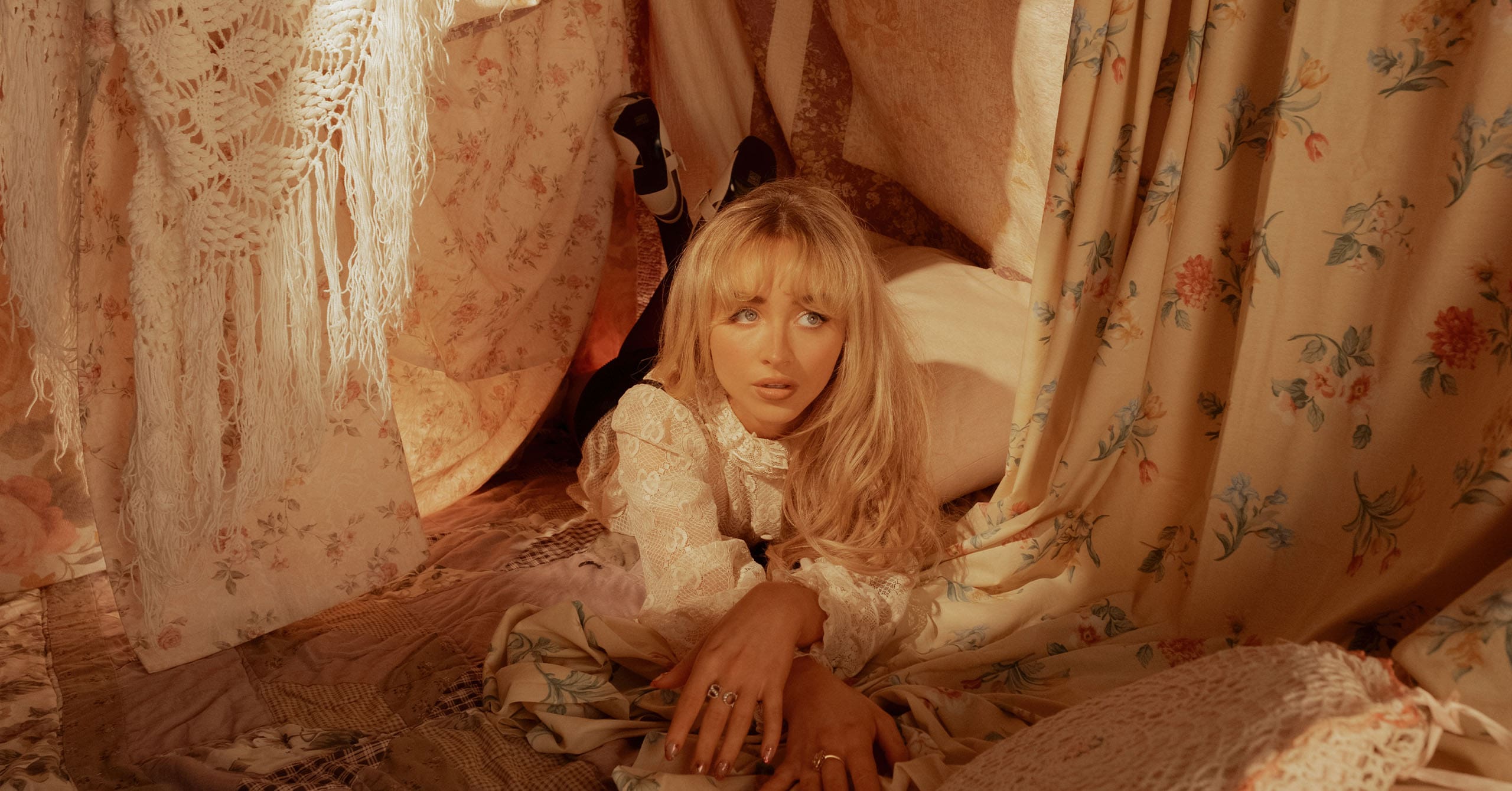GUCCI lace shirt and corset, EIGHTH MERMAID mini skirt, CHARLES AND KEITH mary janes, MILADAY JEWELS jewelry. Photographed by Shaira Luna.
GUCCI lace shirt and corset, EIGHTH MERMAID mini skirt, CHARLES AND KEITH mary janes, MILADAY JEWELS jewelry. Photographed by Shaira Luna.
When singer-songwriter Sabrina Carpenter asks you to come to her show wearing your heart on your sleeve, she means it—literally and figuratively.
As gentle rain fell outside the New Frontier Theater, Sabrina Carpenter appeared onstage behind her piano, illuminated by a single stage light. She played the soft first keys of her album’s titular track, “emails i can’t send,” to a raucous eruption of hollers and applause. The song itself began quietly, with the resonance of a distant lullaby, and then built to a crescendo: growing in volume, growing ever more vulnerable. Following the end of each line, there was space at the bottom of each exhale where a tinge of reluctance should’ve gone, but her inflection never wavered. Her voice rang crisp, clear as a bell.
The lights dimmed when the song ended, just as softly as it started, and the next time the audience saw Carpenter, she was confidently posed at center stage. She launched into the next song, “Read Your Mind”: a frustrated cry over a lover’s indecisiveness, packaged neatly into a disco-inflected dance-pop song—only upbeat because it’s ironic. The jump from “emails i can’t send” to “Read Your Mind” was abrupt, but it felt right. It was the kind of shape-shifting that came naturally to the chanteuse version of Sabrina Carpenter.
As an artist and performer, she wields the full range of human expression as if it were an instrument of its own. She tells Vogue Philippines that it’s a practice that has become embedded in her musical DNA. “I feel like more and more, as I get to know my voice, it’s a combination of the words that I choose when I’m expressing my feelings,” she says. “And you know, my sense of humor is a huge part in the way that I deal with my feelings.”
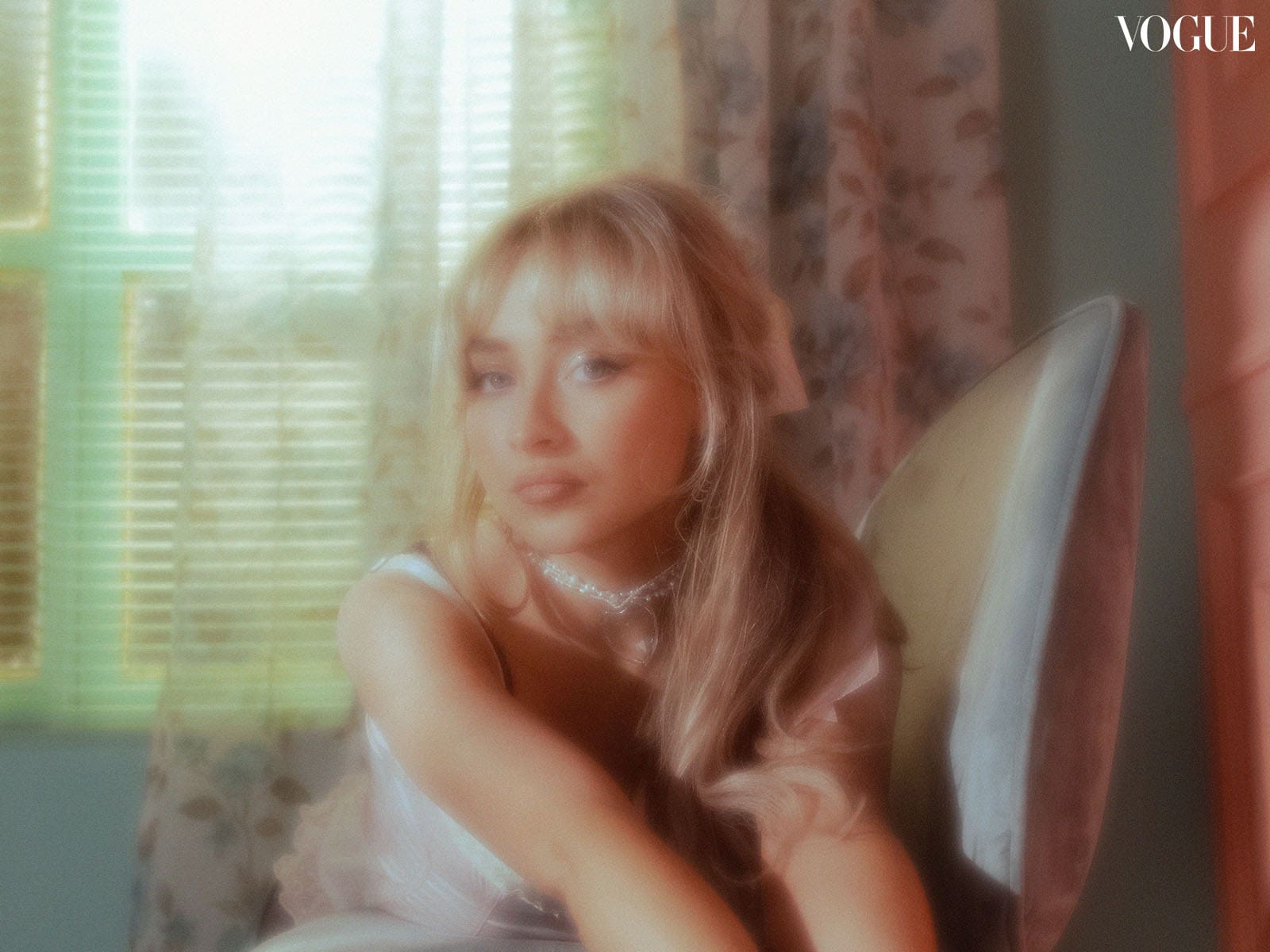
While a pop star’s image is typically tailored to the impossible demands of the mainstream, Carpenter found global acclaim when she allowed herself to be unflinchingly honest (much to her own discomfort, she tells Vogue, as she nearly threw her phone in the ocean when she decided to put out the record). Emails I Can’t Send became her highest-charting album to date, reaching No. 23 on the Billboard 200.
Her prior music put forth a facet of herself that she didn’t feel was “authentic” at the time. “I was just a little bit more blindly confident,” she says. “But it definitely felt like that was something that maybe was better received from me than if I were to be showing my insecurities on a pedestal.” The songwriting process for Emails was more intuitive, she says, and navigating the ebb and flow of mass appeal took a back seat to artistic expression. “It felt, honestly, more exciting to write the truth, whether that was positive or negative or, like, pretty or ugly or well-received or not,” Carpenter says. “I think it mattered that I was saying what I felt instead of trying to sugarcoat things.”
In the album, she croons about being subject to public scrutiny, running into her ex at a café, and lying to her therapist. Each song attempts to capture an elusive moment in time, as real-life conversation and what lies between its lines are what inspires her the most. “Something sticks out,” she smiles. “A word sticks out, or the way a sentence is worded sticks out. And I just know immediately in that moment. I write it down like it’s a song.”
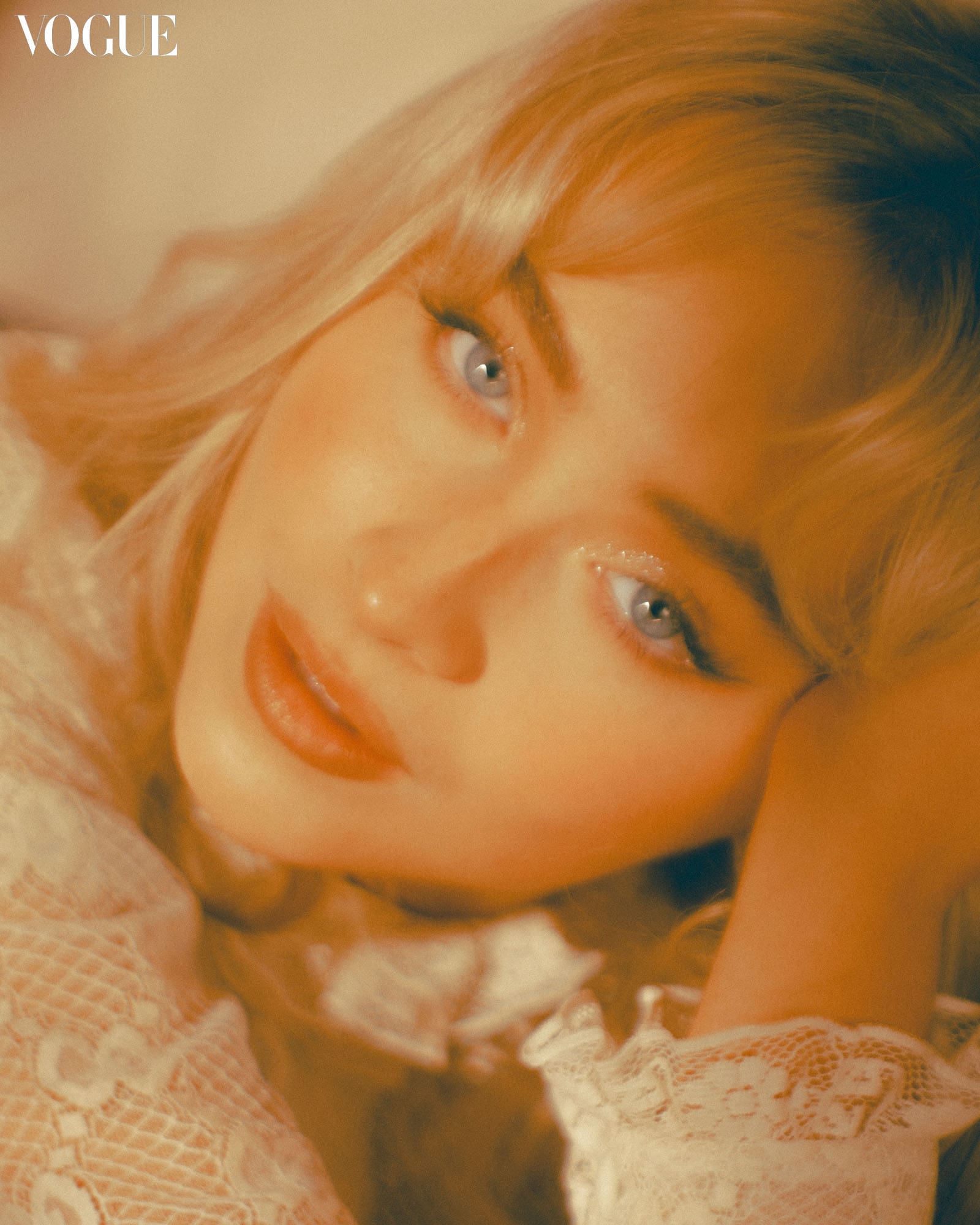
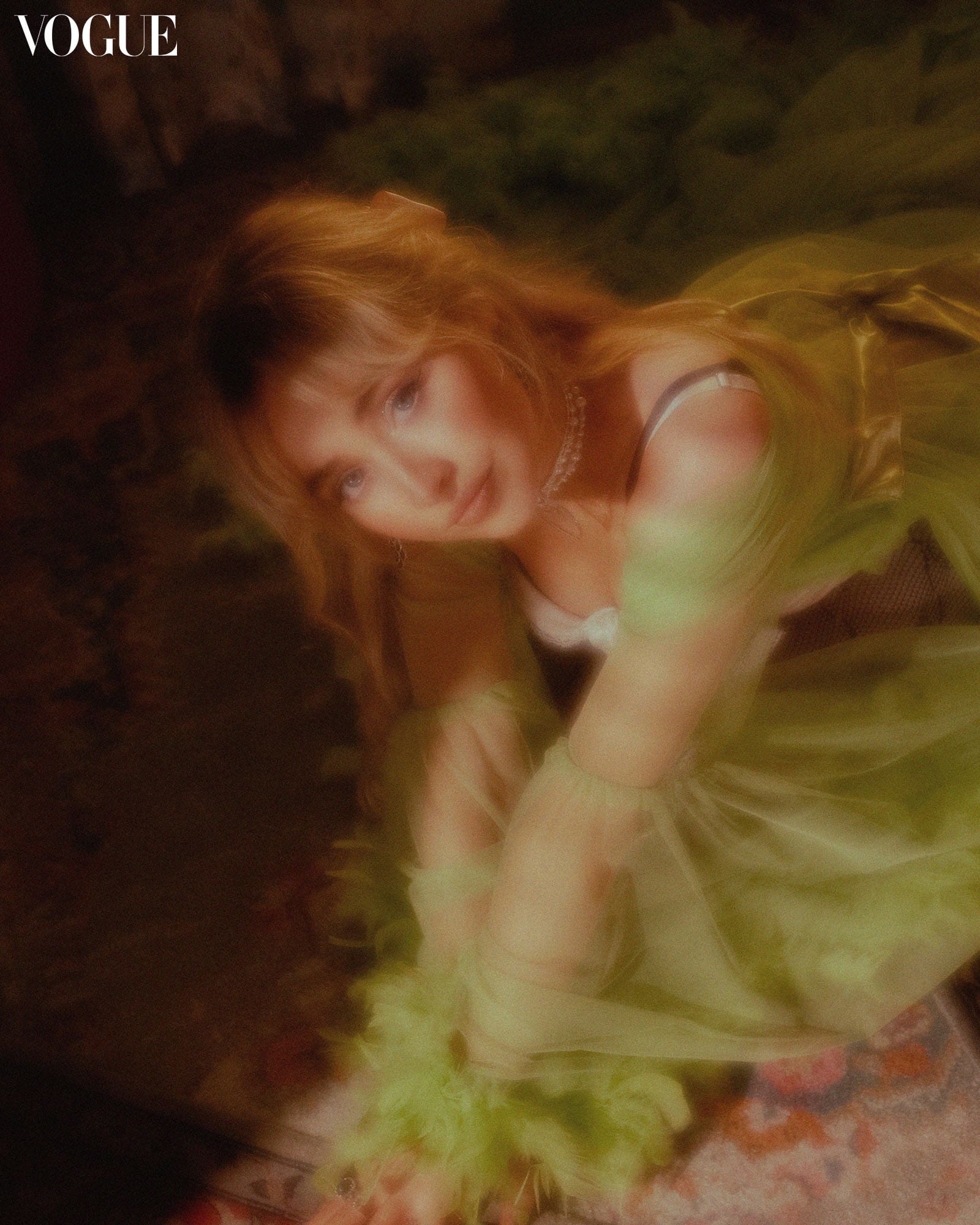
In sound, Emails is largely experimental, teetering along the lines of disco, chamber pop, country, and more. “For a long time, I had a lot of people telling me I had to do one thing and one sound and one genre,” Carpenter recounts. “And the thing I loved the most about pop music was that it was so many different genres. So I kind of did my very best to do that in one album, as much as I could. And I probably will keep doing that because that’s what keeps it exciting for me.”
“It felt, honestly, more exciting to write the truth, whether that was positive or negative or, like, pretty or ugly or well-received or not. I think it mattered that I was saying what I felt instead of trying to sugarcoat things.”
The familiar format of a pristine pop song became a means for Carpenter’s continuous exploration of self. She paints an honest portrait, albeit one that playfully deflects with humor. Many of the songs cite her very specific, very real experiences, down to the tornado warning notification on her phone and the oat milk latte order between an unfortunate run-in with her ex. It only felt “surreal,” then, when she found that her music had the ability to affect people so viscerally. Surreal, because Carpenter says it’s the same way she feels about music.
“Songs really find you when you need them the most,” she says. “When they capture a feeling that you’ve been trying to put into words, that’s when it finds you. And the fact that any of my songs could do that for someone else is, like, truthfully, the reason why I love music in the first place. So it’s a very wholesome feeling to look back to and be like, ‘Okay, this is why I’m doing it. This is why I love it.’”

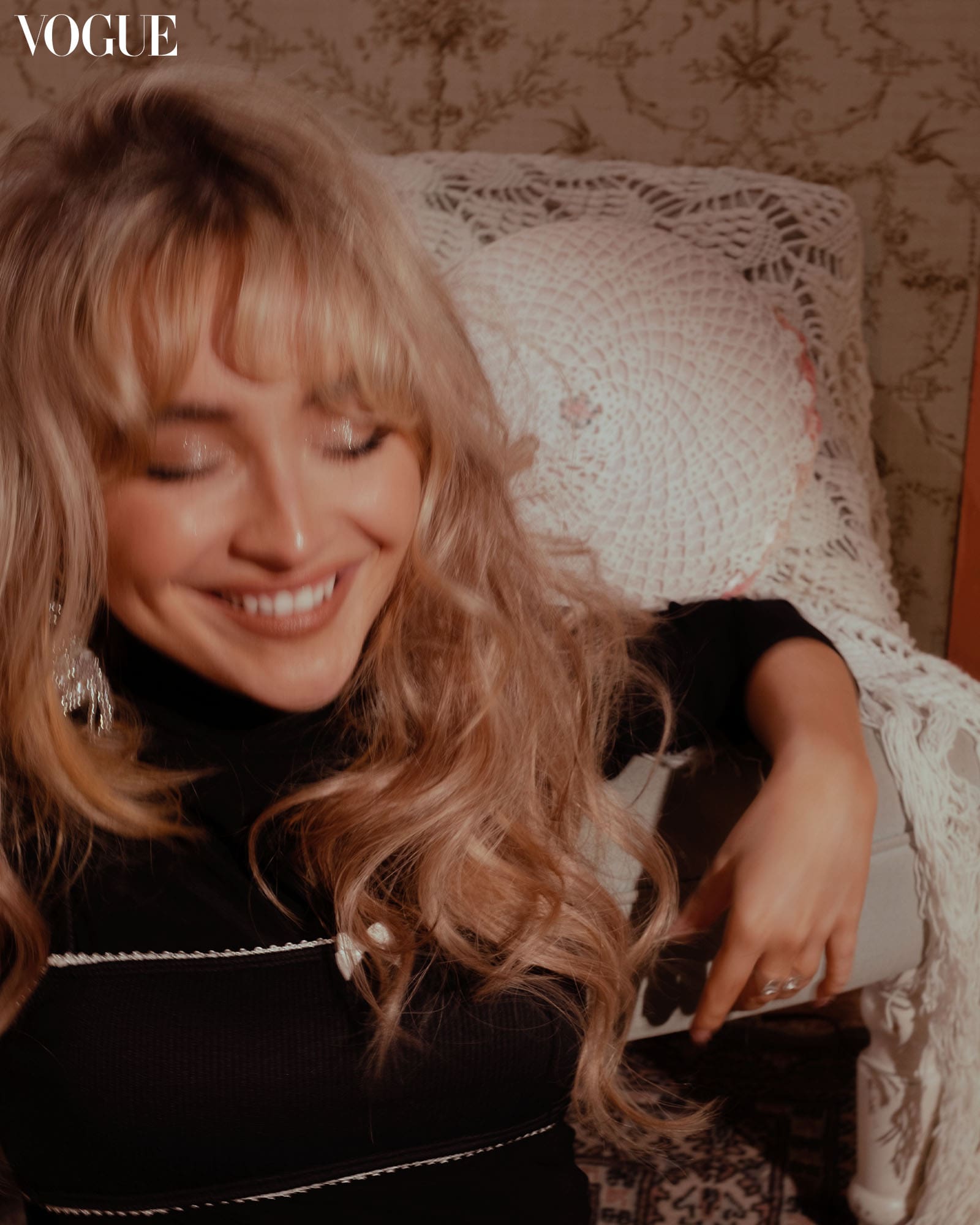
When she’s performing, the five-foot songstress takes up the whole stage with her presence, slinking across the stage with a few added feints, kicks, and pounces—in a pink bustier and micro miniskirt set, no less. But going on tour was something she was nervous about at one time; this international tour was her first after a long while, and she would be performing the more personal songs of her discography. But pretty early into touring, she says, “Fears debunked.”
“Honestly,” she says, “Very, very quickly, I realized that the songs that I was holding close to me for two and a half years and felt really scared for anyone to hear, that weight came off my shoulders really quickly because I saw it connecting to people in ways that it didn’t connect to me.” Back at her performance at the New Frontier, connection was everywhere you looked. If you looked out into the crowd, it would feel as though Valentine’s Day had come early; young women came in varying shades, combinations, and textures of pink, red, and white. They carried light-up forks (a nod to the song “how many things”) and wore customized shirts emblazoned with red hearts on hearts on hearts.
“Songs really find you when you need them the most. When they capture a feeling that you’ve been trying to put into words, that’s when it finds you.”
Fans come to a Sabrina Carpenter show with the full expectation that they’d be bawling one minute and laughing the next—that’s the kind of journey that the album takes the listener on anyway. When the opening notes of her song “decode” began to play, an audience member cried out: “I’ve cried to this song, like, a million times!” In between the songs that hit home, Carpenter makes the addition of a brief intermission in her show, one that certain spheres of the internet have called “80 different names,” from “therapy sessions” to “confessionals.” Carpenter calls it “UnSABscribe,” but “it didn’t really stick.” At the heart of the segment, for Carpenter, it’s “a nice way to kind of get to know my fans on a more intimate level,” she says, “considering, you know, I overshare my entire thought and feeling on the album.”
She says that it’s a part of the show that’s driven by the moment. When asked if she’s always been one to give her friends advice, she laughs (“Oh my gosh, I should take my own”), but says seriously, “I feel like this has been a pattern of seeing the way that women have been treated by men or whoever their dating. It’s been almost, like, sweet in a way to be able to connect with them on that and be like, ‘Yeah, I’ve been there too.’”
She continues, “Sometimes you have to make the mistakes in order to learn, and sometimes, you know, you can learn by trying to not go back to repeated mistakes and repeated behavior. But everyone’s so different. So I try not to be like, ‘This is what you have to do,’ but more so like, ‘I’m here for you, whatever you want to do, and I love you.’”
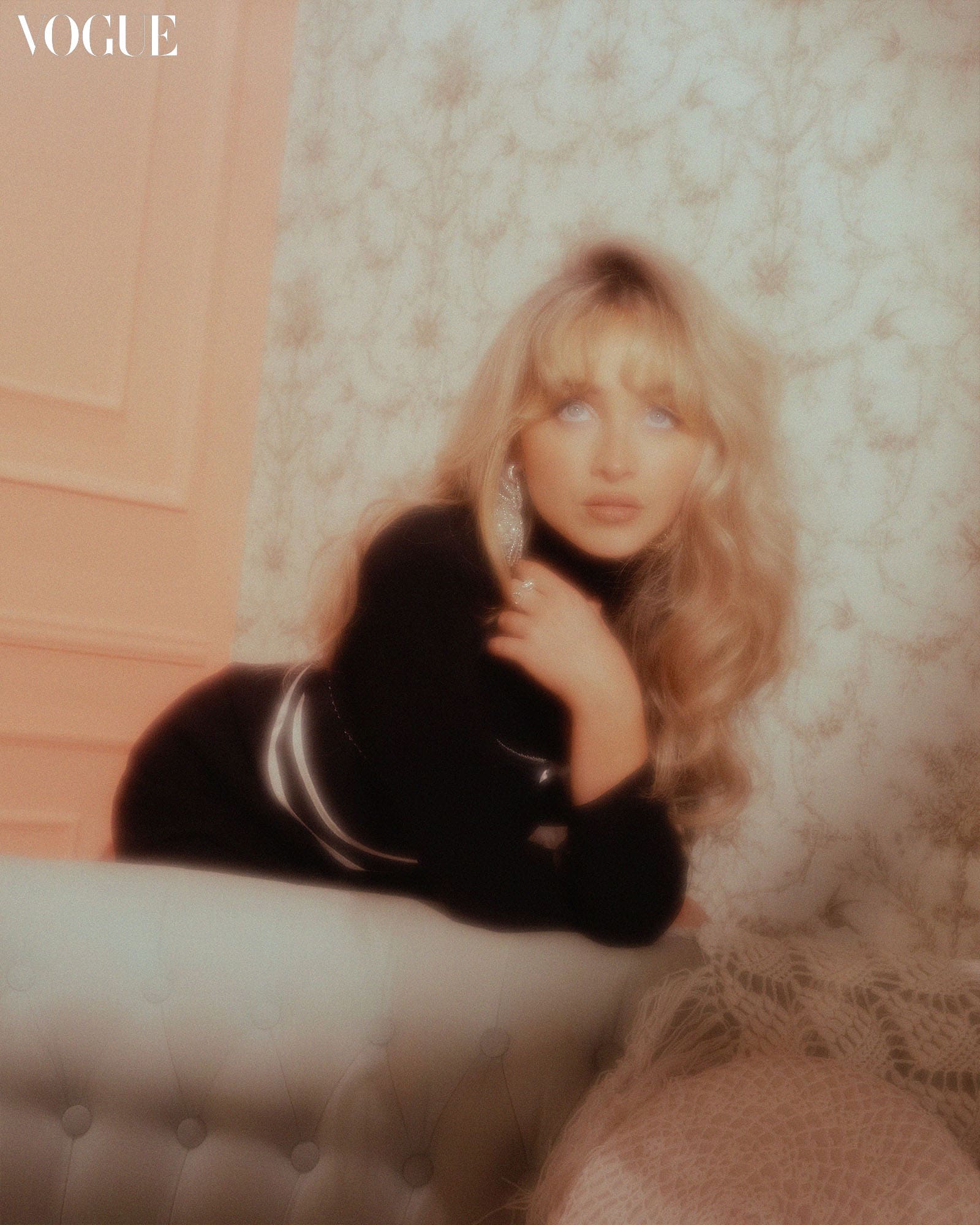
During her Manila show, she spoke with actress Andrea Brilliantes, who voiced out her relationship problems freely, telling Carpenter that her songs gave her feelings a voice when she couldn’t find the words. Carpenter chose “Baby One More Time” as her cover of the night upon Brilliantes’s request for a song that allowed her to let loose for a fun night.
These moments of connection—found between her lyrics, her shows, and her sincerity—make the case for why the young actress-singer-songwriter is so widely loved. Connection, it seems, is hard to find in a post-pandemic world. But Carpenter’s vulnerability resonates.
“At this point, I’m almost, like, too far in to look back,” she says, on whether or not she’ll continue being so open in her future work. “I’m a Taurus, so I don’t really know if that means anything, but I do believe it means that there’s a sense of being stuck in our ways. And I think, for me at least, that just means being whoever I am in that moment that I need to be or have to be. I think that honesty and sincerity are something I hope to keep up for the rest of my life.”
“And if I’d ever feel like I’m not being sincere,” she adds, “I’m probably just hungry.”
Photography and creative direction by Shaira Luna. Stylist: Lyn Alumno. Makeup Artist: Zidjian Paul. Hairstylist: Scott King. Producer: Bianca Zaragoza. Art direction Gabbi Constantino. Multimedia Artists: Tinkerbell Poblete, Bea Lu. Digital Fashion Writer: Chelsea Sarabia. Production Designer: Justine Arcega Bumanlag. Video: MV Isip. Photography Assistant: Lance Luna, Emelito Lansangan. Stylist Associate: Raf Villas. Video Assistant: Denzel Joaquino. Production Design Assistants: Jan Abal, Olderico Bondoc, Geber Cunanan, Jonel Navarro. Digital editor Trina Epilepsia Boutain. Art director Jann Pascua. Special thanks to UMG Philippines.
